Business
Long Ignored Criminal Infiltration of Canadian Ports Lead Straight to Trump Tariffs
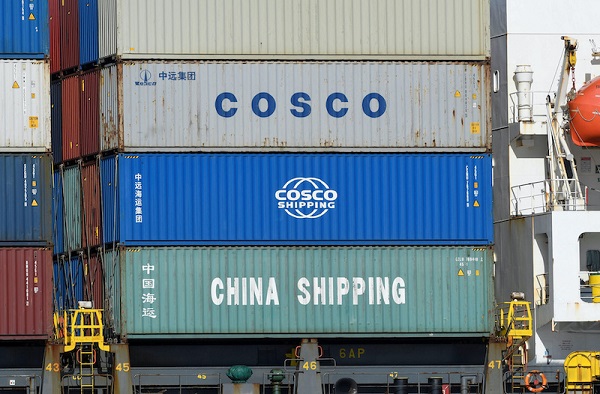
Sam Cooper
Briefings to Liberal Government on Chinese Infiltration of Vancouver Port and Canada’s Opioid Scourge Ignored
Trump Tariffs Loom as Critics Decry Ottawa’s “Fox in the Hen House” Approach to Border Security
As President Donald Trump readies sweeping tariffs against Canada on Saturday—citing Ottawa’s failure to secure its shared North American borders from fentanyl originating in China—The Bureau has obtained a remarkable December 1999 document from a senior law enforcement official, revealing Ottawa’s longstanding negligence in securing Vancouver’s port against drug trafficking linked to Chinese shipping entities.
The Bureau is a reader-supported publication.
To receive new posts and support my work, consider becoming a free or paid subscriber.
The letter, drafted by former Crown prosecutor Scott Newark and addressed to Ottawa’s Security Intelligence Review Committee (SIRC), urged the body to reconsider explosive findings from a leaked RCMP and CSIS report detailing the infiltration of Canada’s “porous” borders by Chinese criminal networks.
Titled “Re: S.I.R.C. Review in relation to Project Sidewinder,” Newark’s letter alleges systemic failures that enabled Chinese State Council owned shipping giant COSCO and Triads with suspected Chinese military ties to penetrate Vancouver’s port system. He further asserts that federal authorities ignored repeated briefings and warnings from Canadian law enforcement—warnings based on intelligence gathered by Canadian officials in Hong Kong, who initiated the Sidewinder review.
Newark also warned that Liberal Prime Minister Jean Chrétien’s decision to dismantle Canada’s specialized Ports Police and privatize national port control had left the country dangerously exposed to foreign criminal networks, noting he had personally briefed the Canadian government on these concerns as early as 1996.
Addressing his letter to SIRC’s chair, Quebec lawyer Paule Gauthier, Newark wrote:
“As the former (1994-98) Executive Officer of the Canadian Police Association, I was assigned responsibility for dealing with the issue of the federal government’s changes to control of the national ports and policing therein.”
“This involved close examination of matters such as drug, weapon, and people smuggling through the national ports and, in particular, both the growing presence of organized criminal groups at ports and the ominous hazard control of those ports by such groups represented.”
Newark’s letter goes on to allege widespread failures in Ottawa that facilitated Chinese Triad infiltration of Vancouver’s port, revealing federal authorities’ reluctance to act on warnings from RCMP officer Garry Clement and immigration control officer Brian McAdam—former Canadian officials based in Hong Kong who had sounded the alarm, prompting the Sidewinder review.
Newark explained to SIRC’s chair that, during his tenure as Executive Officer of the Canadian Police Association, he prepared approximately fifty detailed policy briefs for the government and regularly appeared before parliamentary committees and in private ministerial briefings.
“I can assure you that in all of that time, no clearer warning was ever given by Canada’s rank and file police officers to the national government than what was done in our unsuccessful attempt to prevent the disbandment of the specialized Canada Ports Police in combination with the privatization of the ports themselves,” Newark’s letter to SIRC states.
The letter continues, noting that in October 1996, Newark met with Chrétien’s Transport Minister David Anderson—later addressing the Transport Committee—to highlight the imminent threat posed by Asian organized crime’s infiltration of port operations. Newark’s written briefing to the Minister underscored the gravity of the situation with a blunt question:
“Who exactly are the commercial port operators?”
Citing the Anderson briefing document, Newark’s letter to SIRC states that Anderson had been warned:
“We are, for example, aware of serious concerns amongst the international law enforcement community surrounding the ownership of ports and container industries in Asia and, in particular, Hong Kong, Taiwan, and the People’s Republic of China. There is simply no longer any doubt that drugs like heroin are coming from these destinations through the Port of Vancouver, moved by organized criminal gangs whose assets include ‘legitimate’ properties.”
The Anderson briefing also referenced a British Columbia anti-gang unit report, titled “Organized Crime on Vancouver Waterfront,” which made clear that the Longshoreman’s Union had been infiltrated by the Hells Angels.
“The movement of goods through Canada’s ports requires an independence in policing that is impossible without public control,” the report warned.
It concluded:
“This report should be taken as a specific warning to this Government that, prior to downloading operational control over the ports themselves to private interests, Government be absolutely certain as to who owns what—and that it can continue that certainty with power to refuse acquisition of port assets in the future.”
Scott Newark’s letter to SIRC then turns to new intelligence—gathered from Canadian and U.S. officials—that further underscored the vulnerability created by Chrétien’s border policies.
“To now learn that law enforcement and public officials in Canada and the United States have linked a company (COSCO), granted docking and other facilities in Vancouver, to Asian organized crime, arms and drug smuggling is, to say the least, disturbing,” Newark’s December 1999 letter states.
“That this company, its principals, subsidiaries, and partners have been associated with various military agencies of a foreign government—agencies themselves identified by Canadian and American officials as having unhealthy connections to Triad groups—makes a bad situation even worse.”
Newark next addressed the broader implications of Canada’s failure to enforce border security, particularly in relation to the deportation of foreign criminals—a process he had sought to reform while serving with the Canadian Police Association.
Drawing on his experience, he described a deeply flawed immigration enforcement system, one that allowed individuals with serious criminal records to remain in Canada indefinitely. The problem, he wrote, was twofold: not only were foreign criminals able to enter Canada with ease, but authorities also failed to deport those with outstanding arrest warrants.
Newark recounted how, in 1996, a Cabinet Minister requested that he meet with Brian McAdam, a former senior foreign service officer in Hong Kong who had spent years uncovering organized crime’s grip on Canada’s immigration system. McAdam’s detailed revelations, he wrote, had directly led to the launch of Project Sidewinder.
Newark told SIRC that even after leaving the Canadian Police Association in 1998, he remained in contact with McAdam and other officials working to expose this vast and complex national security risk posed by foreign criminal networks.
It was this ongoing communication that led to an even more alarming discovery. Newark wrote that he was stunned to learn that Canada’s government had not only terminated Project Sidewinder but had gone so far as to destroy some related files.
The Bureau is a reader-supported publication.
To receive new posts and support my work, consider becoming a free or paid subscriber.
Newark suggests SIRC’s chair, in her review of Sidewinder, should determine whether “Sidewinder should not have been cancelled … why such inappropriate action was taken and at whose direction this was done.”
He concludes that SIRC should also freshly examine why intelligence reporting from the Canadian officials in Hong Kong, Brian McAdam and Garry Clement had been ignored in Ottawa.
Newark’s letter to SIRC says these failures to act on intelligence included the “Inappropriate granting of visas to Triad members or associates” and “Granting of docking facilities with attendant consequences to COSCO”—and “Failure of CIC and Foreign Affairs to respond appropriately to the various information supplied by McAdam and Clement in relation to material pertaining to Sidewinder.”
In an exclusive interview with The Bureau, Garry Clement, who contributed to investigations referenced in Newark’s letter, corroborated many of its claims and provided further insight. Clement recalled his role in Project Sunset, a 1990s investigation into Chinese Triads’ efforts to gain control over Vancouver’s ports.
“I can remember having a discussion with Scott when he wrote that to SIRC because Scott and I go back a long time,” Clement said. “I knew about him writing on it, but I knew it was also buried.”
He described his own intelligence work during the same period:
“I wrote in the nineties when I was the liaison officer in Hong Kong, a very long intelligence brief on the Chinese wanting to basically acquire or build out a port at the Surrey Fraser Docks area. And it was going to be completely controlled by that time, with Triad influence, but it was going to be controlled by China.”
Clement expressed frustration that decades of warnings had gone unheeded:
“The bottom line is that here we are almost 40 years later, talking about an issue that was identified in the ‘90s about our ports and allowing China to have free access—and nothing has been done over that period of time.”
Newark’s urgent recommendation for SIRC to reconsider Sidewinder’s warnings on Vancouver’s ports was never acted upon.
“We still don’t have Port Police. We got nobody overseeing them,” Clement added. “The ports themselves, it’s sort of like putting a fox in the hen house and saying, ‘Behave yourself.’”
Finally, when asked about the Trudeau government’s claim this week that Canada is responsible for only one percent of the fentanyl entering the United States—a figure reported widely in Canadian media—Clement’s response was unequivocal.
“The fact that we’ve become a haven for transnational organized crime, it’s internationally known,” he said. “So when I read that, with the fentanyl—Trump is wrong in that there’s less than 1% of our fentanyl going to the United States. That’s a crock of shit. If you look at the two super labs that were taken down in British Columbia—I think there’s three now—the amount they were capable of producing was more than the whole Vancouver population could have used in 10 years. So we know that Vancouver has become a transshipment point to North America for opiates and cocaine and other drugs because it’s a weak link, and enforcement is not capable of keeping up with transnational organized crime.”
The Bureau is a reader-supported publication.
To receive new posts and support my work, consider becoming a free or paid subscriber.
That opinion is evidently acknowledged by British Columbia Premier David Eby, according to documents from Canada’s Foreign Interference Commission that say Eby sought meetings with Justin Trudeau’s National Security Advisor.
A record from the Hogue Commission, sanitized for public release, outlines the “context and drivers” behind Eby’s concerns, including “foreign interference; election security; countering fentanyl, organized crime, money laundering, corruption.”
The documents state Ottawa’s Privy Council Office—which provides advice to Justin Trudeau’s cabinet—had recommended that British Columbia continue to work with the federal government on initiatives like the establishment of a new Canada Financial Crimes Agency to bolster the nation’s ability to respond swiftly to complex financial crimes.
Additionally, the PCO highlighted that Canada, the United States, and Mexico were supposedly collaborating on strategies to reduce the supply of fentanyl, including addressing precursor chemicals and preventing the exploitation of commercial shipping channels—a critical area where British Columbia, and specifically the Port of Vancouver, plays a significant role.
Eby acknowledged the concerns again this week in an interview with Macleans.
“I understood Trump’s concerns about drugs coming in. We’ve got a serious fentanyl problem in B.C.; we see the precursor chemicals coming into B.C. from China and Mexico. We see ties to Asian and Mexican organized crime groups. We’d been discussing all of that with the American ambassador and fellow governors. That’s why it was such a strange turnaround, from ‘Hey, we’re working together on this!’ to suddenly finding ourselves in the crosshairs.”
Yet, despite Eby’s claims of intergovernmental efforts, critics—including Garry Clement—argue that nothing has changed. Vancouver’s port remains alarmingly vulnerable, a decades-old concern that continues to resurface as fentanyl and other illicit drugs flood North American markets.
The Bureau is a reader-supported publication.
To receive new posts and support my work, consider becoming a free or paid subscriber.
Business
Democracy Watchdog Says PM Carney’s “Ethics Screen” Actually “Hides His Participation” In Conflicted Investments

 Sam Cooper
Sam Cooper
A democracy watchdog is warning that Prime Minister Mark Carney’s sprawling private investments, including substantial holdings in Brookfield as well as shares in more than 550 other companies, cause a disabling conflict of interest that cannot be solved by his so-called “ethics screen,” ultimately undermining Ottawa’s credibility and negating Carney’s capacity to confront hostile regimes, including China.
In a scathing statement this week, Democracy Watch urged Carney to fully divest his shares and stock options, arguing that Ottawa’s purported “screen” — which relies on Carney’s chosen staff to supposedly shield the prime minister from conflicted business decisions — actually “allows him to participate in, and hides his participation in, almost all decisions that affect his investments.”
Democracy Watch cited the landmark 1987 Parker Commission on conflicts of interest, which concluded that top public officials must sell all investments outright and that blind trusts should be banned as ineffective “shams.”
These warnings echo The Bureau’s March 2025 pre-election investigation, which outlined in granular detail Carney’s deep entanglements with Brookfield and China.
The Bureau revealed that Brookfield, the $900 billion investment giant Carney joined in 2020, held over $3 billion in politically sensitive assets connected to Chinese state-linked real estate and energy conglomerates, as well as a significant offshore banking footprint. One of its headline deals — a $750 million stake in a Shanghai commercial property project dating back to 2013 — was tied to a Hong Kong tycoon with official links to the Chinese People’s Political Consultative Conference, a central “united front” body identified by the CIA as a tool of Beijing’s overseas influence operations.
Brookfield’s heavy exposure in Shanghai was compounded last year when, amid China’s collapsing real estate market, Carney’s company secured nearly $300 million in emergency loans from the Bank of China. As The Bureau reported, this arrangement carried echoes of Carney’s tenure as Bank of England governor, when he helped facilitate the global expansion of the Chinese financial system and lauded the internationalisation of the renminbi as “a global good.”
While Carney claims to have stepped away from operational control at Brookfield before entering politics, The Bureau’s reporting suggested that his influence over the firm’s China strategy lingered well into his leadership tenure.
Duff Conacher, co-founder of Democracy Watch, reinforced the watchdog’s position in interviews with The Bureau.
“It was very unethical for Mark Carney to hide his investments in more than 560 companies for the past four months,” Conacher said. “Unfortunately, many media outlets failed to cover the conflicts of interest, especially regarding Brookfield, and failed to point out that his so-called blind trust isn’t blind at all.”
Conacher warned that Carney’s private holdings risk tainting not just domestic policy but also Canada’s international relationships and moral authority.
“Mark Carney’s investments will affect not only his decisions about laws, policies, taxes and subsidies that affect businesses in Canada but also, given Brookfield’s business interests around the world, will also taint the Canadian government’s relationships,” Conacher said. “This will weaken the government’s actions concerning other countries, including countries like China that interfere in Canadian politics and threaten Canada’s interests in many ways.”
In yet another pre-election investigation published in February 2025, The Bureau delved into Carney’s deep political and business networks that bridge global trade interests converging around China and pro-Beijing Western business elites — networks that illustrate the same theme of ethical conflicts haunting Ottawa today.
As Canada braced for a leadership change — with Prime Minister Justin Trudeau poised to step down in February — the central question of Carney’s campaign, as The Bureau reported, was whether he would govern differently from the deeply unpopular Trudeau. That framework held until Carney’s team succeeded in shifting baby boomer voters onto a new predominant election issue: that he was the best leader to confront President Donald Trump in a trade war — a claim that, in hindsight, appears absurd to critics, given Carney’s massive personal investment interests in American companies.
Regardless, back in February, Carney’s camp insisted he was a fundamentally different figure from Trudeau.
Yet The Bureau’s closer examination of Carney’s elite network — guided by the principle that long-standing relationships of trust and shared financial interests shape governance — revealed a constellation of global influencers deeply tied to the World Economic Forum and China’s trade and finance arms, particularly the Asian Infrastructure Investment Bank (AIIB). At its core, this network of influential figures — whose stated goals center on consolidating financial power across borders to coordinate carbon-reduction policies and progressive social outcomes — included not just Carney and Trudeau but also former Canadian ambassador to China Dominic Barton, Trudeau campaign backers Mark Wiseman and Gerald Butts, and AIIB’s Jin Liqun, a senior Chinese Communist Party operative.
Carney’s influence also appeared to extend into Canada’s state broadcaster. Former Power & Politics host Evan Solomon — who in 2015 was embroiled in an art-dealing scandal involving Carney, whom he referred to as “the Guv” — later joined a consultancy with Carney’s wife and Gerald Butts. In a leaked email, cited in The Toronto Star’s 2015 art-dealing exposé, Solomon reportedly wrote: “Next year in terms of the Guv will be very interesting. He has access to the highest power network in the world.”
As it turned out, the ties between the former CBC art-dealing host and the former Bank of Canada governor stood the test of years. Solomon was ultimately chosen by Carney to run for the Liberal Party in Toronto and now serves as his Minister of Artificial Intelligence — a revealing trajectory that exemplifies the ethical ambiguity behind Carney’s deeply intertwined media, business, and political influence networks.
The Bureau is a reader-supported publication.
To receive new posts and support my work, consider becoming a free or paid subscriber.
Invite your friends and earn rewards
Business
It’s Time To End Canada’s Protectionist Supply Management Regime

From the Frontier Centre for Public Policy
Senior Fellow Brian Giesbrecht says it’s time to stop coddling millionaire dairy barons. Supply management drives up grocery bills, blocks trade and makes Canada a global joke. Australia fixed it—we can too.
Canadians are paying the price for political cowardice
Canada’s outdated supply management system forces the average Canadian family to spend $500 a year to protect a small group of wealthy dairy producers, most of them millionaires. This protectionist regime enriches a few at the expense of many, drives up food prices and undermines Canada’s credibility in trade negotiations. It no longer fits the times, and it has to go.
Let’s be clear: this isn’t about attacking dairy farmers. Most are hardworking, conscientious people who’ve built their lives around a system they didn’t create. They rise early, work long hours, rarely take holidays and deserve fair compensation if the system is dismantled. But good intentions don’t justify bad policy.
Under supply management, the government tightly controls how much dairy, poultry and eggs Canadian farmers can produce and imposes steep tariffs—sometimes more than 400 per cent—on imported products to limit competition. The result is artificially high prices, limited consumer choice and retaliatory tariffs from other countries.
This system, once designed to protect small family farms, is now dominated by fewer than 10,000 large operations, many worth millions. It no longer serves its original purpose, yet it remains in place because of political cowardice. Pierre Poilievre and Mark Carney both know the system is flawed but won’t challenge it. Why? Because it’s popular in Quebec, a province with significant electoral influence. No party wants to risk alienating those voters.
Australia and New Zealand once faced similar challenges. They phased out their systems, fairly compensated farmers through levies and built globally competitive dairy sectors. We can too. Trump’s return to power may force our hand, but it also gives us an opportunity to act on what we should have done long ago.
Even without outside pressure, the inefficiency is clear. Every year, billions of litres of milk are dumped when quotas are exceeded. At the same time, Canadian companies like Saputo are forced to relocate abroad to reach global markets. Our artisan cheese producers are trapped in a small domestic economy while foreign markets block our exports in retaliation for our own protectionism.
The hypocrisy is glaring. We call for free trade but defend a system that imposes up to 400 per cent tariffs on imports. Our global partners are right to scoff.
Trump did. In a social media post, he wrote: “Canada is a very difficult country to TRADE with, including the fact that they have charged our Farmers as much as 400 per cent Tariffs, for years, on Dairy Products.” And in his July 10 letter announcing 35 per cent tariffs on Canadian goods, he added: “Canada charges extraordinary Tariffs to our Dairy Farmers—up to 400 per cent—and that is even assuming our Dairy Farmers even have access to sell their products to the people of Canada.”
This isn’t just an American objection. High-quality dairy from France and Germany can’t be sold in Canada because of our import barriers. Their governments respond by blocking our dairy exports. Canada loses jobs, investment and credibility.
Some defenders claim foreign dairy is unsafe. But countries like France and Germany have food safety standards as strict as ours. And Canada already has legal mechanisms to block substandard imports. We don’t need tariffs for that.
Former Liberal MP Martha Hall Findlay said it plainly: supply management is a dead end. So did Maxime Bernier, who made it a central issue during his bid for the Conservative leadership. The dairy lobby made sure he didn’t win. And we’re still stuck.
Now, all parties have voted to exclude supply management from current trade talks. We are entering negotiations that demand fair treatment while protecting one of the most unfair systems in the developed world. It’s a national embarrassment.
But this can change. A phased buyout funded by a modest, temporary levy—not taxpayer dollars—could end supply management and open our dairy sector to global opportunity. Australia and New Zealand proved it works. Their citizens don’t pay $10 for butter or yogurt. Neither should we.
It’s time to stop protecting the past. Dismantle the system. Free our producers. Lower grocery bills. Restore our credibility.
Maxime Bernier saw it in 2017. Trump is saying it again in 2025.
This time, we’d better listen.
Brian Giesbrecht is a retired judge and senior fellow at the Frontier Centre for Public Policy.
-

 Alberta1 day ago
Alberta1 day agoMedian workers in Alberta could receive 72% more under Alberta Pension Plan compared to Canada Pension Plan
-

 Alberta2 days ago
Alberta2 days agoAlberta ban on men in women’s sports doesn’t apply to athletes from other provinces
-
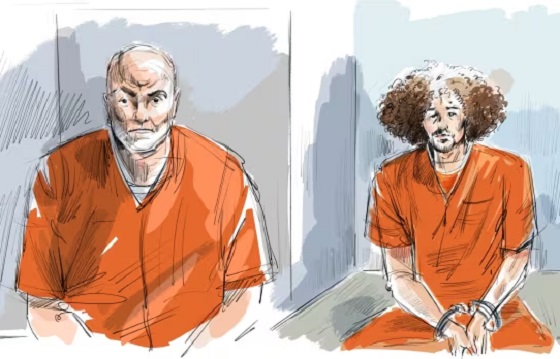
 National2 days ago
National2 days agoCanada’s immigration office admits it failed to check suspected terrorists’ background
-
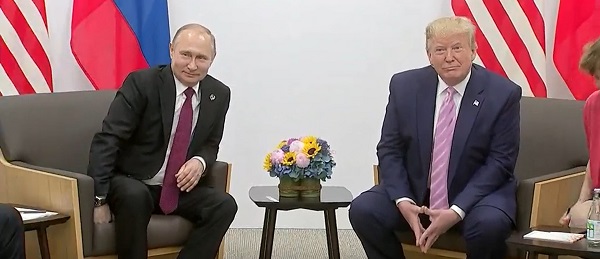
 conflict2 days ago
conflict2 days agoTrump’s done waiting: 50-day ultimatum for Putin to end Ukraine war
-
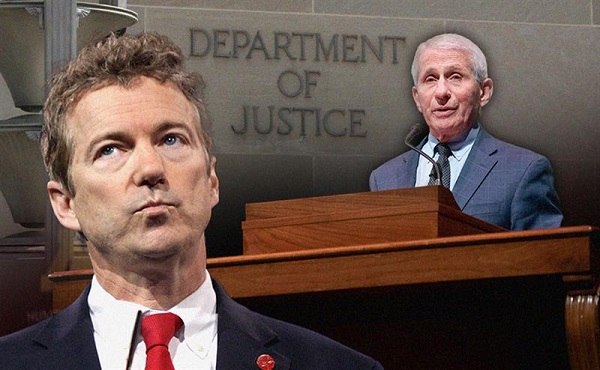
 COVID-191 day ago
COVID-191 day agoSen. Rand Paul: ‘I am officially re-referring Dr. Fauci to the DOJ’
-

 Energy2 days ago
Energy2 days agoActivists using the courts in attempt to hijack energy policy
-

 Daily Caller2 days ago
Daily Caller2 days ago‘Strange Confluence Of Variables’: Mike Benz Wants Transparency Task Force To Investigate What Happened in Butler, PA
-
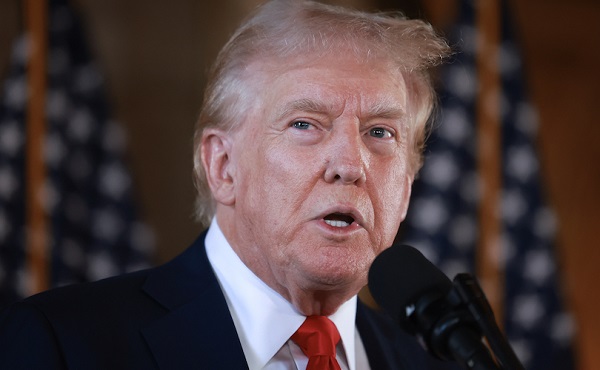
 Education1 day ago
Education1 day agoTrump praises Supreme Court decision to allow dismantling of Department of Education








